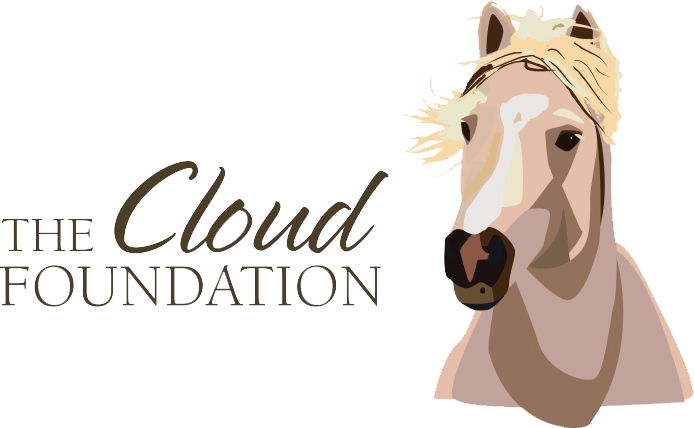How To Advocate Effectively for Wild Horses with the Media
When advocates personalize the wild horse issue to reporters, it results in reporting that focuses on false narratives.
Let me be clear. My goal here isn't to bash advocates or reporters. But advocates need to understand how reporters work.
Reporters aren't investigative journalists. They are getting you to talk because they don't know the issue, aren't going to spend time doing independent fact checking, no independent research. Their sole job is to report what people SAY.
If they start with the BLM and believe their message (which they will, because they've gotten the press releases and seen other news reporting), they are starting out believing that advocates are all emotional horse lovers with no facts on their side.
If you are interviewed by a reporter, you have to act like a press secretary, not an advocate.
No emotion. No crying. No naming the foals you love. You need to offer straightforward facts: Livestock interests behind the roundups. Livestock program causes the damage. Livestock program overgrazes. Livestock program will replace the horses with more livestock.
Then you need to offer proof. Keep a printout of the livestock grazing pages off the BLM website on you (if you're at a roundup) and offer to walk reporters through it. If you're on the phone, get them onto the BLM's livestock grazing web pages. If you get them that far, then you can OFFER the latest GAO report or Congressional Research Service report on the BLM's public lands livestock grazing program.
Remember: Reporters think that advocates don't have facts. But having too many will make you sound unfocused. Keep it to the point: a livestock program exists, here it is, this is what proves the BLM's story is false.
Reporters are nice. That's how they get you to talk.
But you are an authority on wild horses. They aren't. Exercise that authority.
Don't just answer their questions. Lead the conversation. If it veers away from livestock, stop and redirect. Use few words. Like you're reprimanding a kid:
No. It's livestock. No, it's livestock. You need to report on the livestock. Here's the livestock program on the BLM website.
Set the terms of your participation as interview subject. Ask "Are you going to report on the livestock program I'm going to tell you about? Are you going to ask the BLM about their livestock program displacing wild horses? Doesn't the public deserve to know about the BLM's livestock grazing program?"
Make them answer. Get a guarantee that they'll cover it.
I was interviewed by UPI on wild horses, and I said, "I'll give you a statement, but you have to use it." I gave them the statement. They tried to edit it.
I ended the interview. Another advocate did the same.
The reporter abandoned the story.
If a reporter won't agree to your statement, your terms, or answer your questions, end the interview. Tell them so. Don't keep talking.
Reporters hate it when subjects end interviews.
No subject, no story.
We all know that people like to be featured in news reports. But if you aren't prepared to speak like a press secretary, recommend someone who will. It doesn't have to be a wild horse group. Most of them don't know how to speak to the press.
Now you know this. Act on it. Take control.
###
Written by Vickery Eckhoff, re-posted here with permission of the author. Please contact info@thecloudfoundation.org with questions, do not contact the author.
Vickery Eckhoff has written about the BLM, DOI and USDA since 2011 for Counterpunch, Forbes, AlterNet, Newsweek, Salon, the Daily Beast, and dailypitchfork.org, a site she co-founded with environmental historian James McWilliams that publishes articles and corrections letters to mainstream media outlets as a matter of public record. Her work on wild horses and public lands ranching also serves as reference material in Christopher Ketcham’s “This Land” and Stephen Nash’s “Grand Canyon for Sale”; on westernwatersheds.org; and in BioScience and Pacific Standard (among other outlets).
Additional resources on public lands grazing for advocates. These are a good start and there’s an additional wealth of information online:
How Welfare Ranchers Take Taxpayers for a Ride: https://psmag.com/environment/horsing-around-with-the-truth
Western Watersheds Project: The Real Price and Consequence of Livestock Grazing on America’s Public Lands: https://www.westernwatersheds.org/sustainable-cowboys-welfare-ranchers-american-west/
PEER: America’s Rangelands Deeply Damaged by Overgrazing: https://www.peer.org/americas-rangelands-deeply-damaged-by-overgrazing/
Sierra Club on Cost of Public Lands Grazing: https://content.sierraclub.org/grassrootsnetwork/team-news/2019/09/feds-discounted-grazing-fees-hurt-taxpayers-environment-report-says
Western Grazing: The Capture of Grass, Ground and Government: http://www2.law.mercer.edu/elaw/western%20grazing.pdf
Western Watershed Project on Effects of Livestock Grazing on Sage Grouse: https://us3.campaign-archive.com/?u=b6e4c9d4d764b707e5c720f28&id=dce6cff1f9
Western Watershed Projects’s Erik Molvar Testimony before Congress re: Livestock Grazing Impacts on Federal Lands: https://www.congress.gov/115/meeting/house/108521/witnesses/HHRG-115-II10-Wstate-MolvarE-20180712.pdf
WHB Fact Checks: http://dailypitchfork.org/?p=1481
Forbes Billionaire Welfare Ranchers: http://dailypitchfork.org/?p=698
The 2013 NAS Report: https://www.fs.usda.gov/Internet/FSE_DOCUMENTS/stelprd3796106.pdf
The 1971 WFRHB Act: http://pvdrforms.org/uploads/download/3061/whbact_1971.pdf
TCF’s Assessment of The Path Forward : https://www.thecloudfoundation.org/current-events/2019/5/16/racing-to-extinction-new-management-plan-will-devastate-our-wild-herds
The Path Forward Document (ASPCA, HSUS, RTF collaboration with Multiple Livestock interests): https://static1.squarespace.com/static/59f8c99ff09ca4e7c237d467/t/613e1bc2d4d5203348864a18/1631460290217/SPCA+Wild+Horse+Burro+Proposal+4.22.19.pdf
